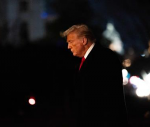You are here
Israel, Hamas, Hizbollah and risks of regional escalation
Sep 03,2023 - Last updated at Sep 03,2023
Recently, the risks of regional escalation have noticeably increased. Amid rising tensions in the West Bank, Israeli Prime Minister Benjamin Netanyahu has threatened Hamas leaders that they would pay what he described as the “full price”. This was in response to Hamas Deputy Chief Saleh Al Arouri saying that the Israeli government will suffer a “resounding defeat, which would lead to their withdrawal from the entire West Bank”. In a TV interview, the Hamas leader suggested that the current policies of the Israeli government will lead to all-out war in the region.
This recent verbal escalation also involved the leader of Hizbollah Hassan Nasrallah who emphasised that he would not allow Lebanon to become a battleground, threating a severe reaction if Israel escalated. He insisted that they will not allow a return to assassinations in Lebanon and will not accept changes to the rules of conflict. While the threats from both sides appear very serious, they may not be able to prevent the Israelis from taking action and changing the rules of the conflict.
The Israeli policy to target Iran, Hizbollah and Syrian targets on Syrian territories has continued, so it might not be in Israel’s strategic interest to expand its intervention to Lebanon and open a second front. Hizbollah is facing internal crises, and while confrontation with Israel is limited and contained at the moment, it could offer a solution to the internal complexity they both face. Hizbollah is being blamed for the deep socioeconomic and political crises Lebanon is facing, and Netanyahu is facing difficulties from the opposition parties as well as from within his ruling coalition. Shifting attention and priorities to the potential for escalation could provide both parties with the upper hand to distract from and take control of their own internal situations.
Netanyahu is unlikely to be interested in regional open war and more likely to focus on expanding his old strategy of peace with Arabs and continuing the normalisation process with other countries. But he may be alone amongst his current ruling coalition to be interested in relations with new Arab countries or the broader Middle East. He knows that this might be his last term and would, therefore, be focussed on building a legacy of peace on his way out rather than starting a war as part of his legacy.
Escalation in the West Bank appears to be imminent and Israeli policy is pushing it along. The risk of instability from various factors could also increase the potential for open violence given questions around the Palestinian authority and its future. The succession of Abbas could result in a significant increase in the level of violence.
Other questions about the role of Hamas and how Israel would accept this role as the movement is proving to be the concrete power on the ground, and one that cannot be eliminated. These issues need to be addressed quickly by the region, particularly those countries that are keen to contain the risk of escalation and prevent the scenarios of chaos.













